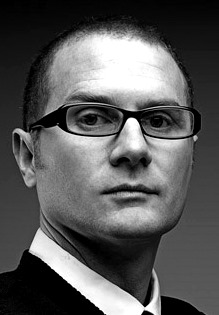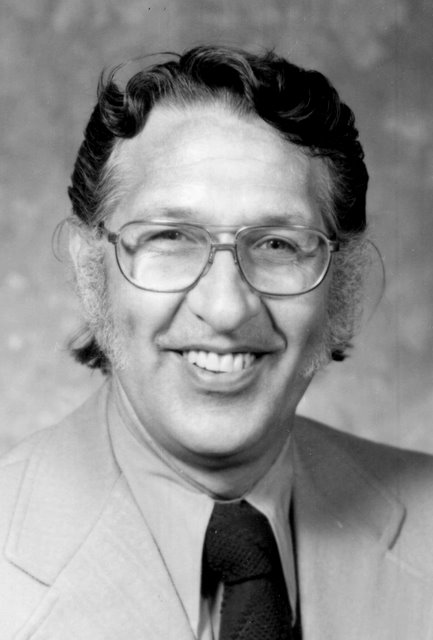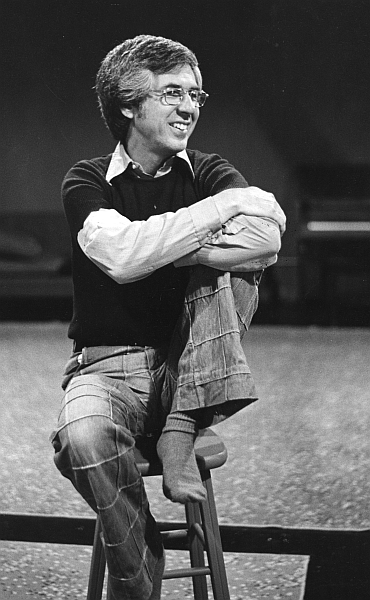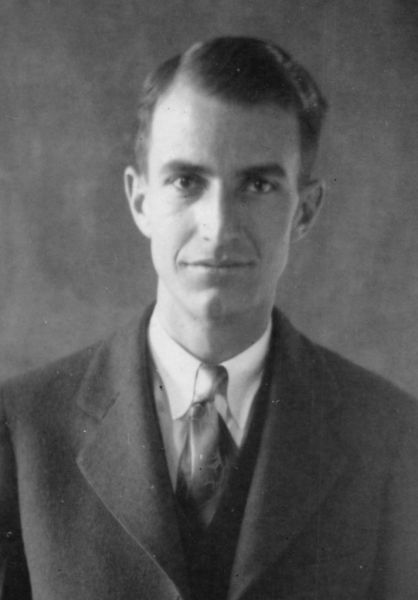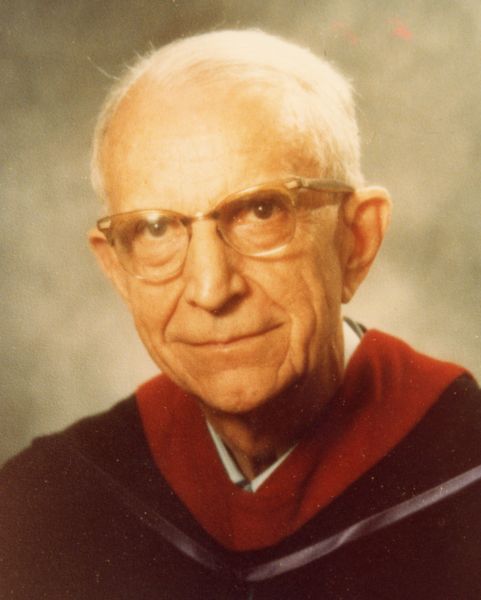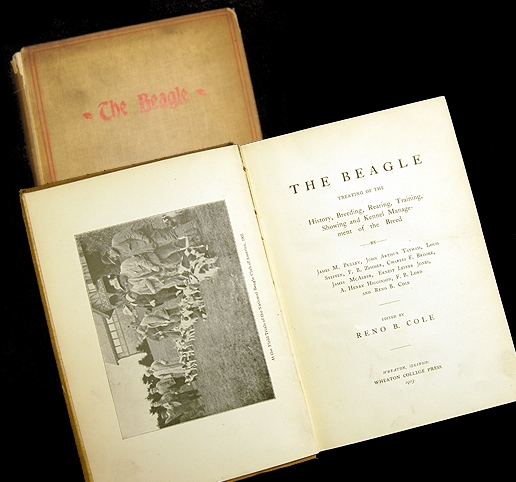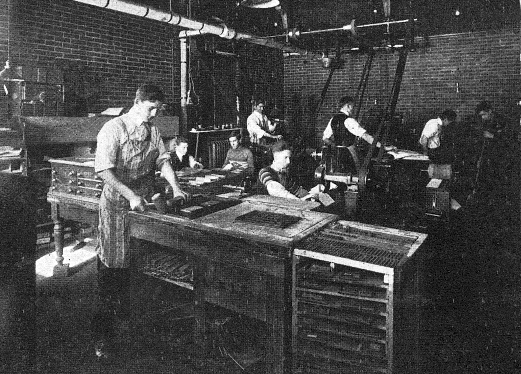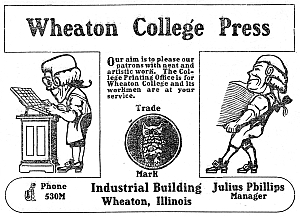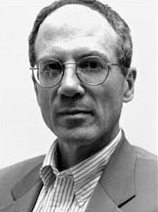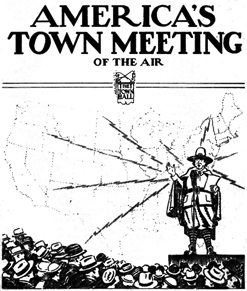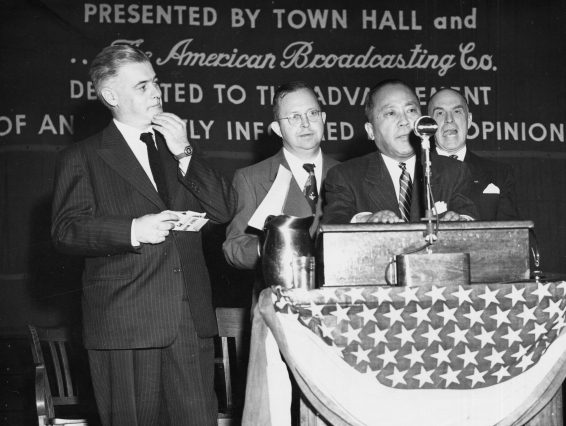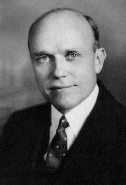 Sometime during his last year as a student at Moody Bible Institute, J. Lloyd Hunter preached at Pacific Garden Mission in Chicago. Leading a ragged drunkard to Christ, Hunter reflected on the man’s lost decades, years that might have been dedicated to serving Christ rather than alcohol. At that moment Hunter decided to offer his own life in an effort to reach children. Traveling with his wife to various churches around the country, he gained valuable experience working with the American Sunday School Union. While living in Wheaton in 1937, Hunter, ablaze with a vision for evangelization, organized the Rural Bible Crusade, a ministry encouraging public school children to systematically memorize scripture. Its first advisory council consisted of J. Oliver Buswell, V. Raymond Edman, J.D. Hall, John R. Rice, Wendell Loveless, Bob Jones, Sr., William McCarrell, Oscar Lowry, Paul Rood, Harry Rimmer, George Strohm, Louis Talbot and Walter Wilson. Shortly before Christmas vacation of that year, Hunter stood before the students of Wheaton College to introduce his program. There Hunter’s idea was packaged as a contest, with letters sent to four thousand local school teachers. The envelopes contained a tract, Four Things That God Wants You to Know, with a request that pupils memorize Bible verses. Four hundred teachers responded positively, some requesting to join the contest, and to them were sent Gospels of John and a tract. Prizes were given for the verses learned. Ten verses entitled the pupil to a button. Thirty-two earned him a New Testament. Five hundred verses won him a fine leather Bible. Many families who never attended church received a Bible and heard the Gospel for the first time. Under the direction of Hunter, Phil Saint, Wheaton College student and brother of missionary martyr Nate Saint, taught “chalk talks” to classes, training young people in the essentials of presenting the Gospel to children. As the ministry blossomed Hunter’s health declined, and he entered the hospital in 1943, where he led three nurses to Christ shortly before his death. He was 55. Later that year, a committee met at Wheaton College and formed a constitution which delineated new internal organization. After the document’s ratification, the work of Rural Bible Crusade continued as it enrolled thousands of children in the Bible Memory Program. In 1966 the ministry moved from Wheaton to Salinas, Kansas; and in 1990 it changed its name to “Bible Impact Ministries.” In 1993 the ministry relocated to St. Louis, MO, expanding with permanent camps and facilities. Hunter’s passion for evangelizing and discipling young souls survives unabated.
Sometime during his last year as a student at Moody Bible Institute, J. Lloyd Hunter preached at Pacific Garden Mission in Chicago. Leading a ragged drunkard to Christ, Hunter reflected on the man’s lost decades, years that might have been dedicated to serving Christ rather than alcohol. At that moment Hunter decided to offer his own life in an effort to reach children. Traveling with his wife to various churches around the country, he gained valuable experience working with the American Sunday School Union. While living in Wheaton in 1937, Hunter, ablaze with a vision for evangelization, organized the Rural Bible Crusade, a ministry encouraging public school children to systematically memorize scripture. Its first advisory council consisted of J. Oliver Buswell, V. Raymond Edman, J.D. Hall, John R. Rice, Wendell Loveless, Bob Jones, Sr., William McCarrell, Oscar Lowry, Paul Rood, Harry Rimmer, George Strohm, Louis Talbot and Walter Wilson. Shortly before Christmas vacation of that year, Hunter stood before the students of Wheaton College to introduce his program. There Hunter’s idea was packaged as a contest, with letters sent to four thousand local school teachers. The envelopes contained a tract, Four Things That God Wants You to Know, with a request that pupils memorize Bible verses. Four hundred teachers responded positively, some requesting to join the contest, and to them were sent Gospels of John and a tract. Prizes were given for the verses learned. Ten verses entitled the pupil to a button. Thirty-two earned him a New Testament. Five hundred verses won him a fine leather Bible. Many families who never attended church received a Bible and heard the Gospel for the first time. Under the direction of Hunter, Phil Saint, Wheaton College student and brother of missionary martyr Nate Saint, taught “chalk talks” to classes, training young people in the essentials of presenting the Gospel to children. As the ministry blossomed Hunter’s health declined, and he entered the hospital in 1943, where he led three nurses to Christ shortly before his death. He was 55. Later that year, a committee met at Wheaton College and formed a constitution which delineated new internal organization. After the document’s ratification, the work of Rural Bible Crusade continued as it enrolled thousands of children in the Bible Memory Program. In 1966 the ministry moved from Wheaton to Salinas, Kansas; and in 1990 it changed its name to “Bible Impact Ministries.” In 1993 the ministry relocated to St. Louis, MO, expanding with permanent camps and facilities. Hunter’s passion for evangelizing and discipling young souls survives unabated.
[Some information for this entry is derived from Bible Impact Ministries.]
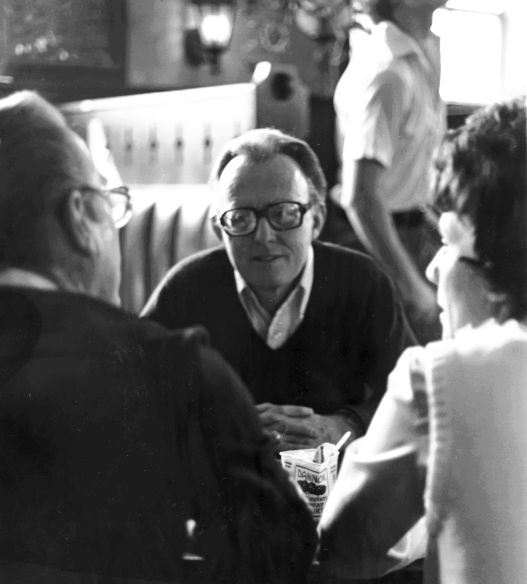
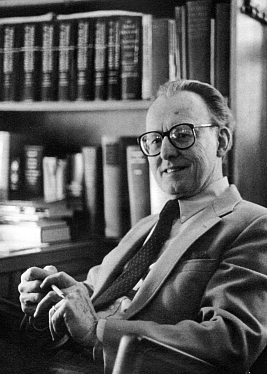 When Windsor House was torn down the group was invited to join the men in Kay House, so that this tradition could continue. By the time that particular Kay House group of men were ready to move on via graduation to their higher calling, the new “pharaoh knew not Joseph.” So no successive invitation was extended from that house. When that moment of desperation came, however, many of our student friends were awarded Hidden House as their next year’s domicile, and with one voice they beckoned us to come and join them at their home each Wednesday morning as usual. The tradition kept going and growing. This pleasurable and profitable welcome break from the routine bustle of academic life continued unabated for more than a decade.
When Windsor House was torn down the group was invited to join the men in Kay House, so that this tradition could continue. By the time that particular Kay House group of men were ready to move on via graduation to their higher calling, the new “pharaoh knew not Joseph.” So no successive invitation was extended from that house. When that moment of desperation came, however, many of our student friends were awarded Hidden House as their next year’s domicile, and with one voice they beckoned us to come and join them at their home each Wednesday morning as usual. The tradition kept going and growing. This pleasurable and profitable welcome break from the routine bustle of academic life continued unabated for more than a decade.